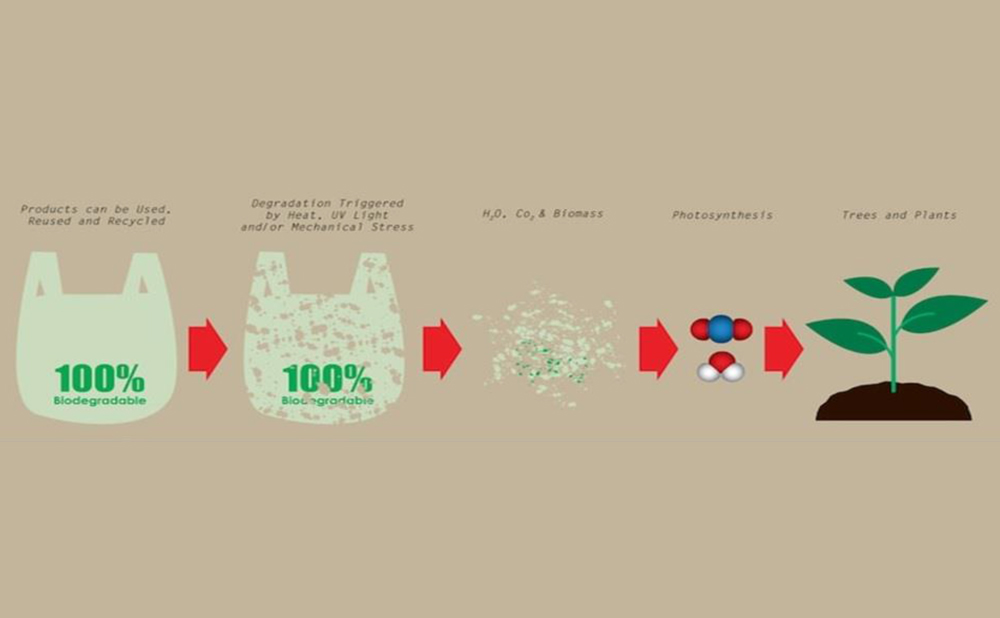
All plastics, including traditional petroleum-based plastics, are technically degradable. Given the right amount of time and environmental conditions, they will break down into tiny fragments. However, the materials used to make traditional plastics will never fully return to a “natural” state and will continue to pollute the environment with chemical compounds.
Unfortunately, the term biodegradable has proven to be problematic because it often lacks clear information about the process requirements and timeframe required for biodegradation. In fact, to prevent consumers from being misled, California actually banned the use of the word biodegradable for any plastics sold within the state. Bio plastics that are considered “biodegradable” can be broken down by microorganisms such as bacteria, fungi, and algae into water, carbon dioxide, methane, biomass, and inorganic compounds. For practical purposes, bio plastics that can be completely broken down within a few months are considered biodegradable. Bio plastics that biodegrade more slowly (requiring up to a few years to be broken down) are referred to as “durable.”
Compostable bio plastics can be broken down by microorganisms into nutrient-rich biomass in as little as three months and leave behind no toxins or residue. Some compostable bio plastics require high temperatures to decompose and must be returned to commercial composting facilities, while others can be composted in home gardens. Polylactic acid (PLA) is a compostable, injection-molded bio plastic that is quickly replacing petroleum-based polymers for the production of food packaging and single-use items because it can be easily composted. PLA also produces 70% fewer greenhouse gases when it degrades in landfills.
Major Difference Between Bio-Plastic And Petroleum Base Plastic
| Bio-Degradable Plastic | Normal Plastic |
| This is carbon free Plastic. Which is harmless to atmosphere. | This plastic hold carbon, When they are disposed of and begin to decompose or when they are melted, that carbon is then released into the atmosphere. |
| This is not the case with biodegradable plastics, which do not contain those polluting materials. | Methane and other forms of pollutants could also be released from traditional plastic when they are recycled and burned. |
| Sustainably –Sourced Bio plastics | Petroleum-based Plastic |



If you feel like knowing more about biodegradable plastic bags, feel free to contact VISHVA EXIM
Contact no- +91 99099 61225
Email:- marketing@vishvaexim.com >